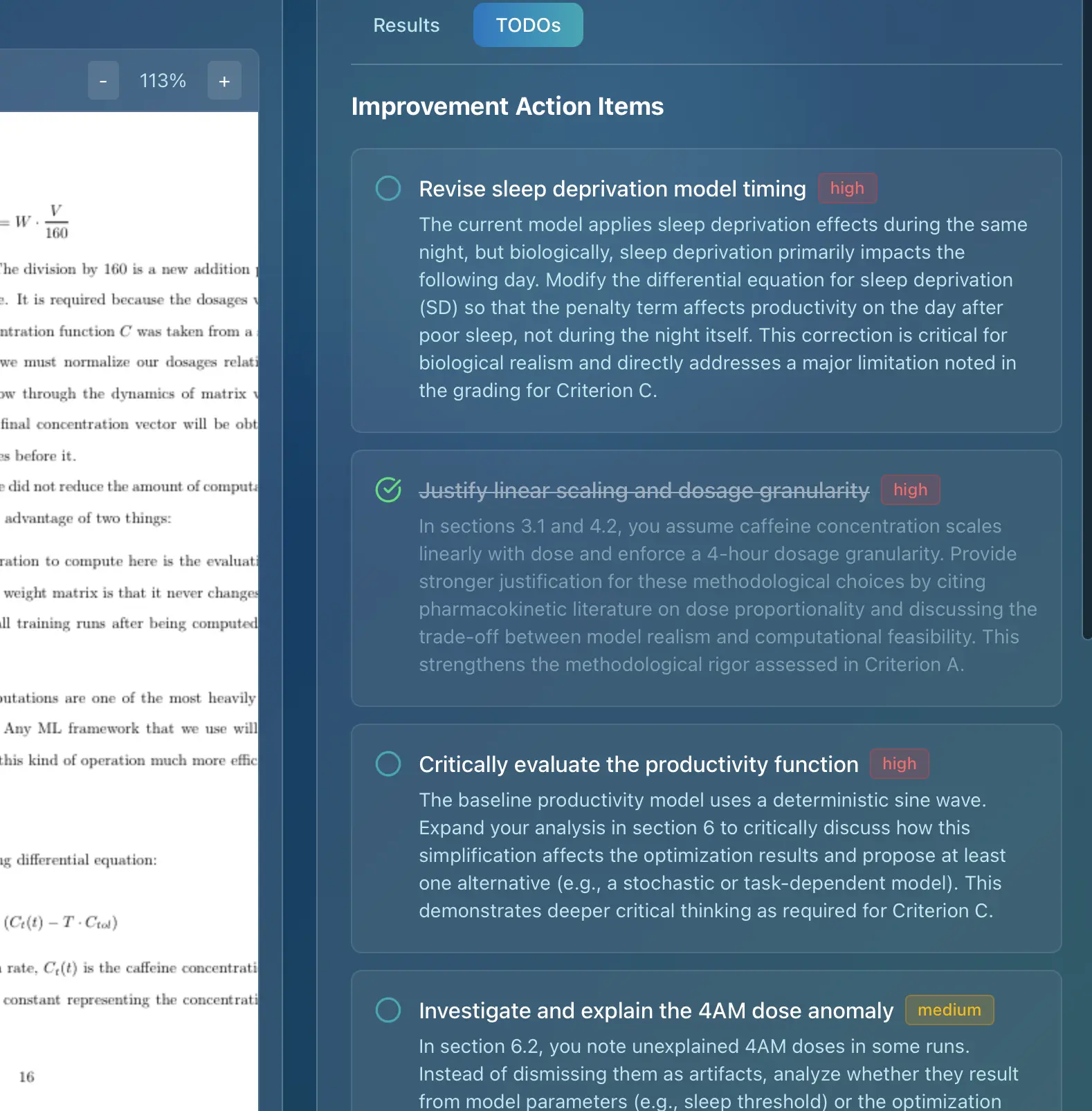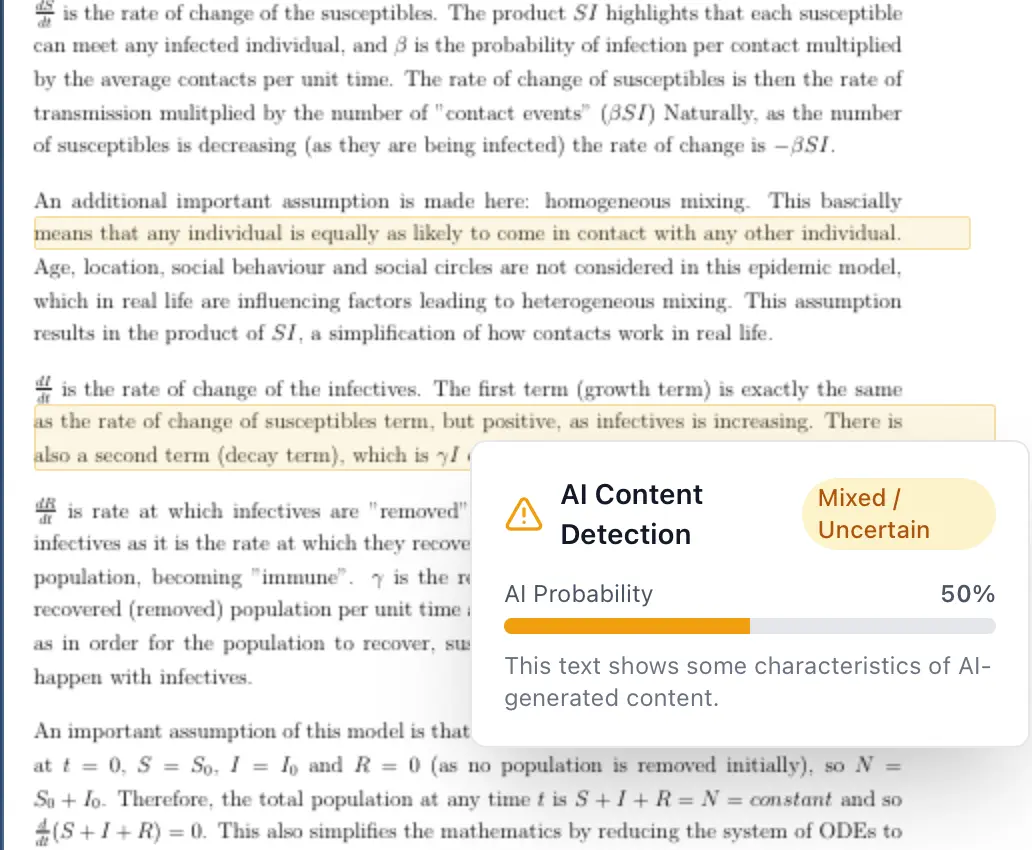How to Choose Your TOK Essay Title: A 2024 Guide
Choosing the right Theory of Knowledge (TOK) essay title is the crucial first step towards a successful IB assessment. This guide is designed to equip you with the knowledge and strategies needed to select a title that sparks insightful exploration and allows you to demonstrate a deep understanding of knowledge questions. We'll break down the process, offering actionable tips, real-world examples, and expert advice to help you navigate this challenging task and maximize your score. By the end of this guide, you'll be confident in your ability to choose a TOK essay title that sets you up for success in the International Baccalaureate program.
Introduction (Answer the Query Immediately)
The Theory of Knowledge (TOK) essay is a cornerstone of the International Baccalaureate (IB) Diploma Programme. It's not just about writing; it's about thinking critically about knowledge itself. And the journey begins with selecting the right prescribed title. This 2024 guide is your roadmap to choosing a TOK essay title that not only aligns with your interests but also allows you to demonstrate a sophisticated understanding of knowledge questions. We'll explore strategies for understanding the nuances of each title, identifying relevant knowledge questions, and crafting an essay that showcases your analytical skills. This guide is designed to help both students and teachers navigate the TOK essay process with confidence.
Struggling with IB Assessments?
Get instant, detailed feedback on your work with AI that understands IB criteria.

Understanding the TOK Essay and Its Importance
The TOK essay is a mandatory component of the IB Diploma Programme. It requires you to critically examine the nature of knowledge, its sources, and its limitations. Unlike typical academic essays, the TOK essay isn't about presenting facts; it's about analyzing how we know what we claim to know. A well-chosen title is the foundation upon which you build your entire argument. It should allow you to explore complex ideas, connect different Areas of Knowledge (AoKs) and Ways of Knowing (WoKs), and demonstrate your ability to think critically and independently.
Decoding the Prescribed Titles: A Step-by-Step Approach
The IB releases a set of prescribed titles each year. These titles are carefully crafted to encourage exploration of fundamental knowledge questions. Here's a step-by-step approach to decoding them:
- Read Each Title Carefully: Don't skim! Pay close attention to every word and its potential implications.
- Identify Key Terms: What are the core concepts being addressed? Underline or highlight these terms. For example, in the title "Are facts always neutral?", the key terms are "facts" and "neutral."
- Unpack the Assumptions: What assumptions are embedded within the title? What underlying beliefs are being challenged or explored?
- Brainstorm Potential Knowledge Questions: What questions about knowledge arise from the title? These questions will form the basis of your essay.
- Consider Different Perspectives: How might different individuals or groups interpret the title? How might different Areas of Knowledge (AoKs) offer different insights?
Example:
Let's take the title: "Is there a good reason to trust reason?"
- Key Terms: "Reason," "Trust," "Good Reason"
- Assumptions: The title assumes that trust in reason is not automatic and requires justification.
- Potential Knowledge Questions:
- What constitutes a "good reason" to trust something?
- What are the limitations of reason as a Way of Knowing?
- Are there alternative ways of knowing that are more reliable than reason in certain contexts?
- Different Perspectives: A mathematician might have a different perspective than an artist or a historian.
Identifying Strong Knowledge Questions
A strong knowledge question is:
- Open-ended: It doesn't have a simple "yes" or "no" answer.
- Contestable: Reasonable people can disagree about the answer.
- Generalizable: It applies to multiple contexts and Areas of Knowledge.
- Focused: It's not too broad or vague.
- Relevant: It directly relates to the prescribed title.
Weak Knowledge Question: "Is reason important?" (Too broad and obvious)
Strong Knowledge Question: "To what extent does reliance on reason hinder our ability to appreciate the emotional and intuitive dimensions of human experience?" (Open-ended, contestable, generalizable, focused, and relevant)
Connecting to Areas of Knowledge (AoKs) and Ways of Knowing (WoKs)
The TOK essay requires you to connect your analysis to specific Areas of Knowledge (AoKs) and Ways of Knowing (WoKs).
- Areas of Knowledge (AoKs): Mathematics, Natural Sciences, Human Sciences, History, The Arts, Ethics, Religious Knowledge Systems, Indigenous Knowledge Systems.
- Ways of Knowing (WoKs): Reason, Emotion, Language, Sense Perception, Intuition, Faith, Memory, Imagination.
When choosing a title, consider which AoKs and WoKs you are most comfortable exploring. A strong essay will demonstrate a nuanced understanding of how these different elements interact.
Example:
If you choose a title related to ethics, you might explore the role of emotion and reason in moral decision-making. If you choose a title related to the natural sciences, you might examine the limitations of sense perception in scientific observation.
Pro Tip: Get AI-Powered Grading
Stop second-guessing your grades. Get instant feedback aligned with official IB rubrics.

Common Challenges/Mistakes Section
Many students struggle with the TOK essay. Here are some common challenges and how to overcome them:
- Choosing a Title That's Too Broad: This leads to a superficial analysis. Solution: Narrow your focus by identifying specific knowledge questions and AoKs/WoKs.
- Describing Knowledge Instead of Analyzing It: The TOK essay is not a research paper. Solution: Focus on critically examining the nature of knowledge itself, not simply summarizing what is known.
- Failing to Connect to AoKs and WoKs: This makes the essay too abstract. Solution: Explicitly link your arguments to specific Areas of Knowledge and Ways of Knowing.
- Ignoring Counterclaims: A strong essay considers multiple perspectives. Solution: Acknowledge and address counterclaims to strengthen your argument.
- Using Vague or Unsubstantiated Claims: Every claim should be supported with evidence and examples. Solution: Provide concrete examples from different AoKs to illustrate your points.
Advanced Tips/Strategies Section
- Think Outside the Box: Don't be afraid to challenge conventional wisdom. A unique and insightful perspective can impress examiners.
- Develop a Clear Argument: Your essay should have a clear thesis statement that you defend throughout.
- Use Precise Language: Avoid ambiguity and jargon. Define your terms clearly.
- Structure Your Essay Logically: Use a clear introduction, body paragraphs, and conclusion.
- Seek Feedback: Ask your teacher, peers, or a TOK expert to review your essay before submitting it.
- Relate to Real-World Examples: Use current events, historical events, or personal experiences to illustrate your points.
- Consider the Implications of Your Conclusions: What are the broader implications of your findings? How might your conclusions affect our understanding of knowledge?
Technology and Modern Assessment Section
Technology is rapidly transforming education, and the IB is no exception. AI-powered tools are becoming increasingly valuable for both students and teachers in the TOK essay process.
For students, AI can assist with research, brainstorming, and even identifying potential knowledge questions. However, it's crucial to use these tools responsibly and ethically. The TOK essay is ultimately about your own critical thinking, not about outsourcing your thinking to a machine.
For teachers, AI grading assistants like Marksy are revolutionizing the assessment process. Marksy provides instant, accurate, and detailed feedback on student work based on official IB rubrics. This helps teachers provide consistent and objective assessments, saving them valuable time and ensuring that students receive the specific guidance they need to improve.
Marksy's rubric-aligned scoring and criterion-by-criterion feedback empower students to understand exactly where they excel and where they need to focus their efforts. By using AI to streamline the grading process, teachers can dedicate more time to providing personalized support and fostering critical thinking skills in their students. Marksy uses the official IB criteria, ensuring fairness and accuracy in assessment, while simultaneously freeing up educators to focus on what they do best: teaching.
Conclusion with Clear Next Steps
Choosing the right TOK essay title is a critical first step toward success. By carefully decoding the prescribed titles, identifying strong knowledge questions, and connecting to Areas of Knowledge and Ways of Knowing, you can set yourself up for a rewarding and insightful exploration of the nature of knowledge. Remember to avoid common mistakes, seek feedback, and think critically about the implications of your conclusions.
Next Steps:
- Review the Prescribed Titles: Read each title carefully and identify key terms and assumptions.
- Brainstorm Knowledge Questions: Generate a list of potential knowledge questions for each title.
- Evaluate Your Options: Choose the title that you find most interesting and that allows you to explore the most compelling knowledge questions.
- Start Planning Your Essay: Develop a clear thesis statement and outline your main arguments.
- Try Marksy for Free: See how AI-powered feedback can help you refine your TOK essay and achieve a higher score. Teachers can also sign up for a free trial to experience the time-saving benefits of automated grading. Start your free trial today and unlock your full potential in the IB program!